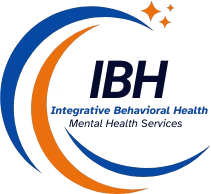Life is full of challenges. From personal setbacks to professional hurdles, stress and adversity are unavoidable. But what if instead of being overwhelmed, you could face these challenges with strength and adaptability? That’s the power of resilience—our ability to recover and grow through life’s ups and downs.
At IBH, we understand that building resilience is essential for maintaining mental well-being and thriving despite hardships. In this blog, we’ll explore practical strategies to help you develop emotional resilience and bounce back stronger than ever.
What Is Resilience, and Why Is It Important?
Resilience is the ability to adapt and recover in the face of stress, trauma, or adversity. It doesn’t mean avoiding challenges—it means facing them head-on with courage, resourcefulness, and a growth mindset.
People with strong resilience tend to:
- Manage stress more effectively.
- Maintain a positive outlook during tough times.
- Develop healthier relationships and support systems.
- Bounce back quicker from setbacks.
Resilience isn’t an innate trait—it’s a skill anyone can cultivate with practice and the right mindset.
Strategies for Building Emotional Resilience
1. Practice Mindfulness
Mindfulness involves staying present and fully engaged in the moment. By focusing on the here and now, you can reduce anxiety about the past or future and better manage stress.
How to get started:
- Dedicate 5–10 minutes a day to mindful breathing or meditation.
- Use mindfulness apps like Headspace or Calm to guide your practice.
- Incorporate mindfulness into daily activities, like eating, walking, or listening.
2. Develop Healthy Habits
Your physical health directly impacts your mental resilience. By adopting healthy habits, you create a strong foundation for handling stress.
Key habits to focus on:
- Sleep: Aim for 7–9 hours of quality sleep each night.
- Exercise: Engage in regular physical activity to reduce stress and boost endorphins.
- Nutrition: Fuel your body with a balanced diet rich in fruits, vegetables, and whole grains.
3. Build a Strong Support System
Resilience doesn’t mean going it alone. Having a trusted network of family, friends, or colleagues provides emotional support and encouragement during difficult times.
How to strengthen your support system:
- Reach out to friends or family members regularly.
- Join a community group or support network.
- Don’t hesitate to seek professional help when needed—services like Employee Assistance Programs (EAPs) can be invaluable.
4. Reframe Negative Thoughts
Resilient people have the ability to reframe negative thoughts into more constructive perspectives. Instead of focusing on what went wrong, focus on what you’ve learned and how you can grow.
Try this exercise:
- When faced with a setback, write down the event and your initial reaction.
- Challenge negative thoughts with questions like, “What can I learn from this?” or “How can I use this experience to grow?”
- Replace the negative thought with a positive, actionable statement.
5. Set Realistic Goals
Having a sense of purpose and direction can help you navigate adversity with greater confidence. Break larger goals into smaller, manageable steps to avoid feeling overwhelmed.
Tips for goal-setting:
- Use the SMART framework: Specific, Measurable, Achievable, Relevant, Time-bound.
- Celebrate small wins along the way.
- Adjust your goals as needed based on new circumstances.
Resilience in Action: The Role of Support Systems
At IBH, we believe that resilience is not just an individual journey but one that can be supported by communities and organizations. That’s why we provide resources like Employee Assistance Programs (EAPs) to help individuals and teams navigate stress and challenges.
EAPs offer:
- Confidential counseling for personal or work-related issues.
- Tools to manage stress, anxiety, and other mental health concerns.
- Guidance for building resilience in both personal and professional settings.
By investing in these resources, organizations can empower employees to thrive even during challenging times.
A Resilient Future Starts Today
Building resilience doesn’t happen overnight, but with consistent effort, it’s a skill that can transform your life. Whether it’s through mindfulness, healthy habits, or leaning on a support system, every small step you take today can lead to a stronger, more adaptable tomorrow.
At IBH, we’re here to help individuals and organizations build resilience and navigate life’s challenges with confidence. Remember, you’re stronger than you think—and with the right tools and support, there’s no limit to what you can overcome.
Ready to take the next step? Explore our resources and learn how IBH can support your journey to resilience.
